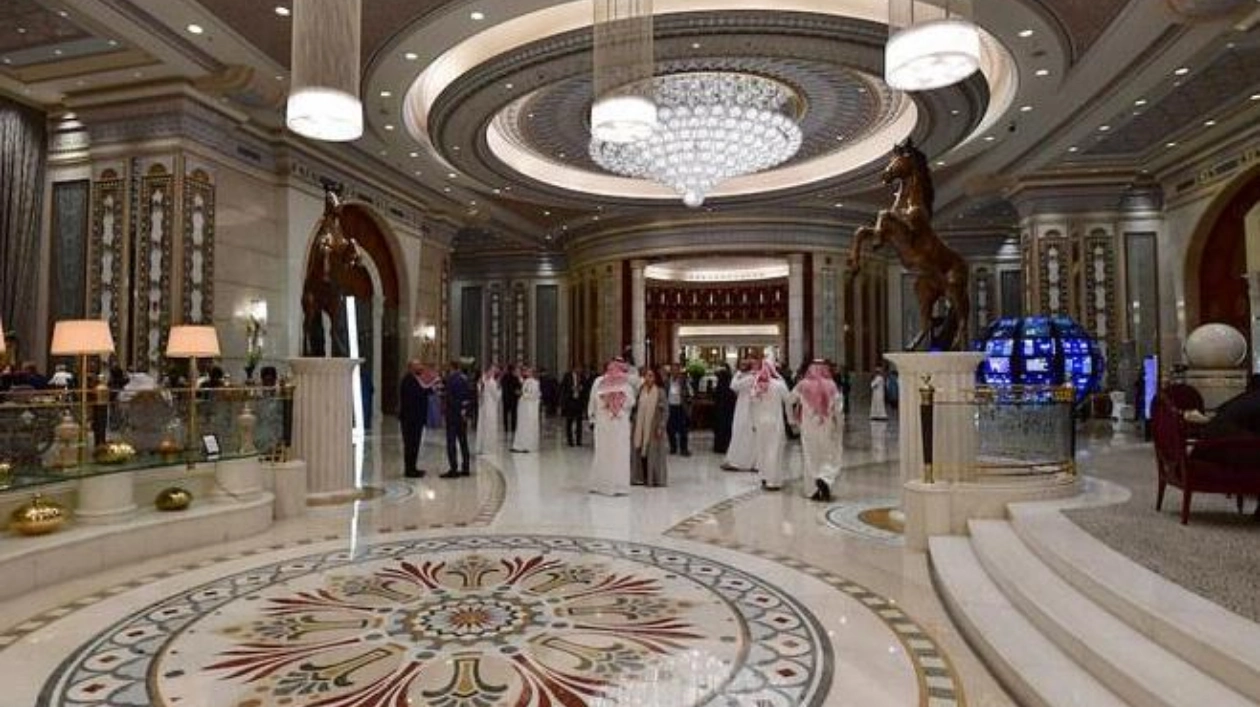JEDDAH: Saudi Arabia’s commercial real estate sector is experiencing significant growth, fueled by increasing demand across critical industries such as offices, hospitality, and data centers.
The sector is also undergoing transformation with an emphasis on smart technologies, sustainability, and specialized assets, aligning with the Kingdom’s broader economic transformation objectives.
Government strategies like Vision 2030 and rising foreign investments are pivotal in this growth, as indicated by the recent Knight Frank report.
Major cities in the Kingdom are emerging as regional commercial hubs, drawing international businesses and supporting Saudi Arabia’s efforts to diversify its economy.
As the Kingdom continues to advance its Vision 2030 strategies, the commercial real estate sector is set to significantly influence the future urban landscape and economic development.
Riyadh remains the focal point of this growth, attracting numerous regional and international companies, while other cities like Jeddah exhibit early growth indicators.
According to Knight Frank’s biannual review for summer 2024, this growth is propelled by rising demand and bolstered by strategic government reforms.
The report highlights that Riyadh’s office market is particularly vibrant, benefiting from initiatives like the regional headquarters program, which has drawn European companies and increased demand for office space.
In 2023, Saudi Arabia’s non-oil revenue reached 50 percent of GDP for the first time, totaling $453 billion, according to the Ministry of Economy and Planning.
The report further states that this economic expansion has significantly heightened demand for commercial real estate across all sectors, with Riyadh’s office market reaping the most benefits.
The commercial real estate sector remains robust, with office yields stabilizing at 7.75 percent, supported by diminishing availability and rapidly increasing rents.
Investor interest in Saudi Arabia is also surging, with the government issuing a record 2,884 investment licenses in the last quarter of 2023, marking a 125 percent year-on-year increase.
Knight Frank noted that in Q1 2024, the Kingdom recorded 104,000 new business registrations, a 59 percent increase from the previous year, bringing the total to over 1.45 million registrations.
Elias Abou Samra, CEO of RAFAL Real Estate Development Co., emphasized that Riyadh has become a regional magnet for commercial real estate, attracting over 500 regional and international companies since the launch of the headquarters program in 2021.
Abou Samra anticipates a new supply of approximately 5 million sq. meters of office space by 2030, which he believes will barely meet the pent-up demand.
He also noted that while other major cities like Jeddah show early signs of growth, the demand remains primarily local and organic, pending the implementation of initiatives like special economic zones.
The sector will continue to benefit from ongoing digital transformation efforts, with technology playing a crucial role in creating smarter, more efficient spaces.
Mamdouh Al-Doubayan, managing director at Globant for MENA, highlighted that government support, sustainability focus, and smart technology implementation will drive market expansion.
Al-Doubayan added that foreign investment, regulatory framework evolution, and demand for innovative workspaces will also significantly contribute to sector growth.
Regarding future success drivers, Abou Samra emphasized that the market is shifting towards mixed-use and transit-oriented developments, reflecting greater sophistication.
He also noted that the modernization of the regulatory environment and quasi-governmental entities are paving the way for innovative products.
Abou Samra identified data centers as the leading new addition to the commercial real estate market, followed by logistics and biomedical sectors, driven by Vision 2030’s objectives.
He highlighted that, in addition to mainstream commercial office space, the industrial and logistics sectors have experienced double-digit growth since 2021, attracting major regional players and foreign direct investments.
Technological advancements, including smart building technologies and digital platforms, are transforming the commercial real estate industry in Saudi Arabia.
Al-Doubayan emphasized that smart building technologies, integrated with IoT, AI, and data analytics, are enabling more intelligent, efficient, and adaptive spaces.
Digital platforms are revolutionizing property management, allowing real-time monitoring and automation of operations, supporting the Kingdom’s vision of smart cities and sustainable urban growth.
The Saudi government is prioritizing the real estate sector, enacting over 18 pieces of legislation to drive its growth and significantly boost GDP.
These include real estate systems, executive regulations, and regulatory rules, reflecting the government’s commitment to this sector as part of Vision 2030.
The sector’s contribution to the Kingdom’s GDP reached 5.9 percent in Q4 2023.
Al-Doubayan stated that regulatory shifts, including more transparent property laws and foreign investment incentives, have significantly increased the market’s attractiveness.
He anticipated that the real estate sector will see continued growth, especially in digital transformation projects that enhance operational efficiency and sustainability.
Al-Doubayan emphasized that sustainability is central to the future of commercial real estate in Saudi Arabia, with green building practices becoming a priority for developers and tenants.
Source link: https://www.arabnews.com






